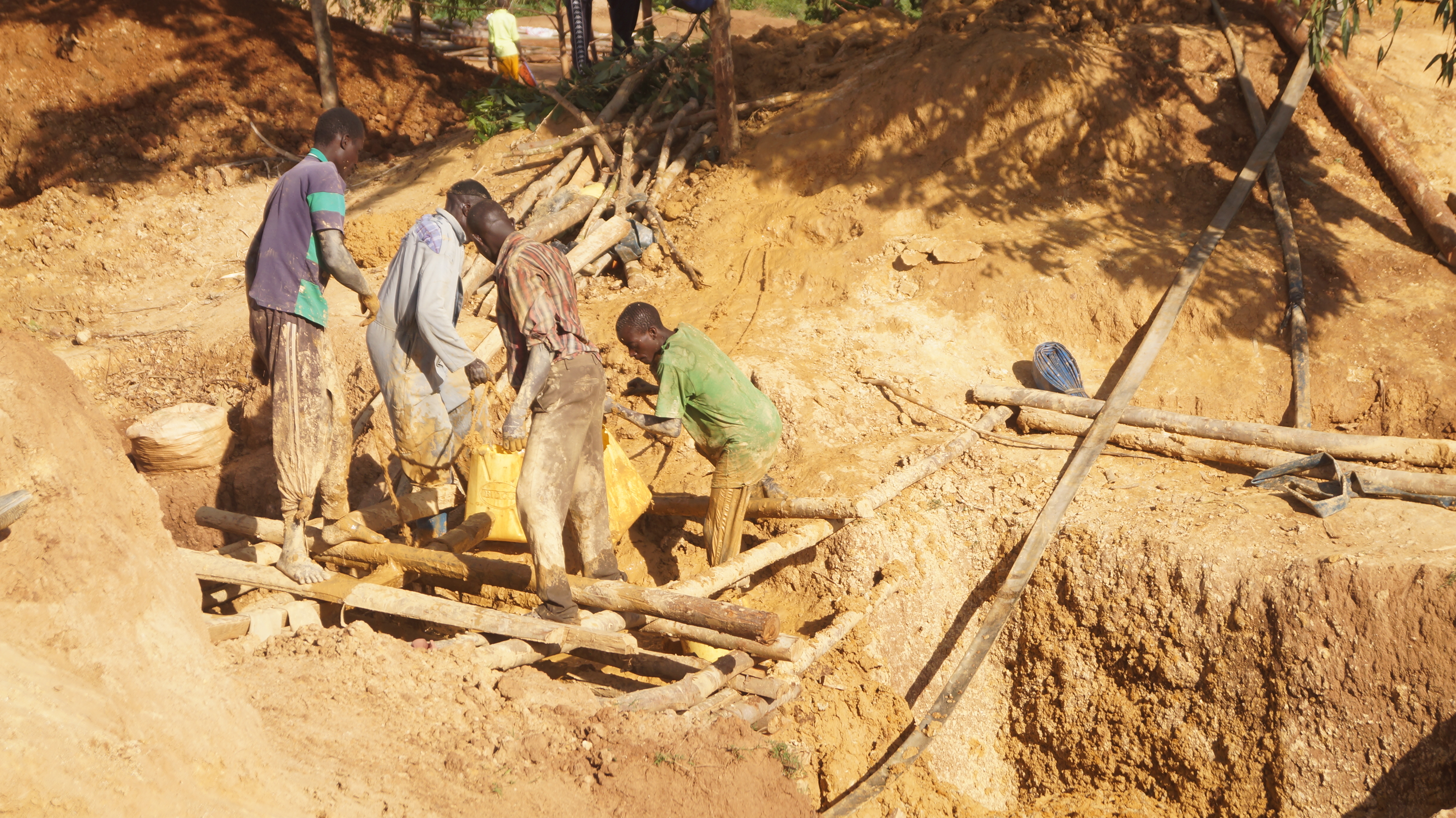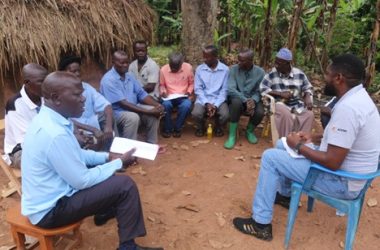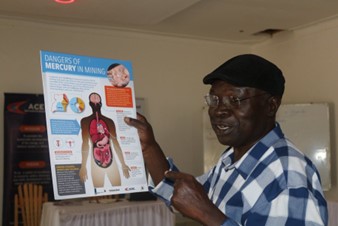The national lockdown over the covid-19 pandemic has effectively sealed off airports, roads and border entry points, causing gold prices to fall by up to 40 percent. Uganda’s largest gold refinery says at least 80% of its supplies have been affected.
As Uganda completes its second week of a nation-wide lockdown and night time curfew, the actual impact of the corona virus pandemic on the economy and businesses is beginning to emerge across different sectors. The smaller enterprises seem to be hit hardest mainly because they do not have the financial resources to cushion against a disruption in operations.
The mining sector, which is dominated by artisanal and small scale miners, has taken a hit too. At a local level, the lockdown has prevented the miners and traders from going to work. At a national level, the shut down of airports and other points of export has crashed the local market for some minerals and brought prices tumbling.
In Busia District, one of Uganda’s biggest sources of gold at the Eastern border with Kenya, the anti-covid-19 control measures have reduced the level of activity by at least seventy percent. Padde Engido, a sixty-year veteran gold miner who also heads the Eastern Region Chapter of the national miners association, describes the situation as “business unusual”.
In implementing the Ministry of Health anti-covid-19 guidelines, his members have been forced to reduce their workforce to avoid overcrowding at mine sites. Those that continue to work can only work half day in order to return to their homes before the curfew time of 7 pm. As a result, production is very low.
Low production aside, the miners have lost market for the little gold that they are producing. International buyers have no means of transporting the precious metal because the airports are closed. The local Indian buyers and refiners have also closed shop temporarily. “The roads are blocked. Because of this, the middlemen have taken advantage of the fact that we can no longer travel to Kampala to sell our gold to the Indians,” says Padde. “The price of a gram of gold has dropped from one hundred and fifty thousand shillings to just ninety thousand shillings.”
On the contrary, gold prices are soaring internationally and have been reported to hit some of the highest values recorded over the past five years.
In gold-rich Kassanda District, just 120 Km from Kampala, mine operators have also laid off workers to decongest the mines. According to sources there, only four of the twenty companies known to operate in the goldfields remain active. Artisanal camp sites have been shut down, sending hundreds of miners back to their home districts empty handed.
Kassanda miners are also frustrated by the low prices offered by the gold buyers. “The local gold buyers are currently offering one hundred and twenty thousand shillings for a gram of gold yet the Indians in Kampala who are currently closed would have given us one hundred and seventy thousand shillings,” says Emma Kibirige, a miner and national mining association leader. He added that the majority of his colleagues have opted to wait it out, hoping to sell their gold at a better price when the national lockdown ends. “Our pockets are full of gold,” he says.
In Northern Uganda, Kidega Stuart, a stone aggregate producer and a mining association leader, reveals that business has almost ground to a halt. “Many of the workers stay far away from the mine site,” he said. “Now that public and private transport have been stopped, these people can no longer access the mine sites.”
He said that prior to the enforcement of the anti-covid 19 guidelines, his association was selling a minimum of twenty trucks of different grades of aggregates per day, each truck with a carrying capacity of four tonnes. Currently, they struggle to sell material than can fill two trucks.
Refiners stuck
A source at the Africa Gold Refinery (AGR), Uganda’s largest golf refinery told PLEXII that the company has been seriously impacted by the national lockdown because it can not receive any gold supplies for refining. “The outbreak of the novel corona virus is having great impact not only on AGR but the world’s economy,” said the source. “Most of the countries have been on lockdown and transportation is banned which limits the movement of people and commodities.”
The source revealed that the company, which refines gold from all over Africa, did not anticipate that the situation would be this bad, adding that the shortage of gold supplies was largely responsible for the price instability in the market. “We must admit that AGR had underestimated the spread and impact of corona virus. Now we can really feel the hit (sic) as there is shortage of supply. The gold supply has been extremely squeezed. AGR is losing eighty percent of its supplies and this is one of the factors why the gold price is hugely volatile.”
PLEXII could not reach several of the other local small-scale refiners based in Kampala for a comment as their known telephones were switched off. The only one who received our call curtly responded “We are all at home. We are not making any money.”
A time to reflect on alternative livelihoods?
Padde Engido, who has been mining gold for thirty-five years, advises artisanal and small scale miners to use this lull in activities to critically think about alternatives to mining such as agriculture. He notes that even with border entry points closed and public transport banned, people still have to eat. “Food markets remain open with some traders escalating prices,” he observes. “Food trucks can still move despite a ban on movement. The farmers remain in business regardless of tough economic times. We need to think about alternative livelihoods.”
Peninah Busingye, a Tin miner from Ntungamo District says her other business is what is enabling her to support her family of four. “I run a retail shop in (Ntungamo) town. During these tough times, I am able to feed my family because of my shop.” However, the shop is also struggling now since people are not coming into the town to shop.
In neighbouring Kabale and Rubanda Districts, the artisanal miners there were forced to resort to other sources of income when the President banned the export of raw iron ore way back in 2012. Many turned to agriculture and are prospering. Sikola Murawusia, an iron ore miner turned farmer in Hamurwa, Rubanda District, says the irish potatoes and beans she grows are sold in Kampala at good prices. She also used to sell to the Rwandese before the border was shut.
With no definite timelines on when the situation will return to normal, this crisis presents an opportunity for artisanal and small scale miners to think about diversifying their sources of livelihoods.
The original article was updated with the comments from the Africa Gold Refinery.







